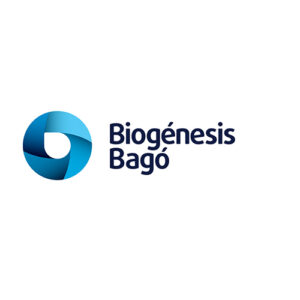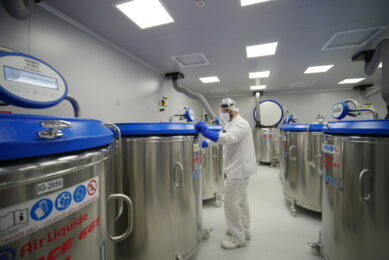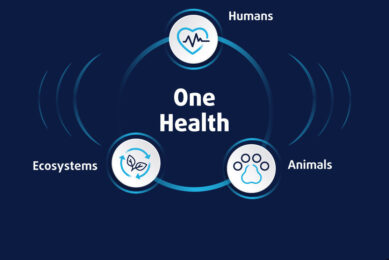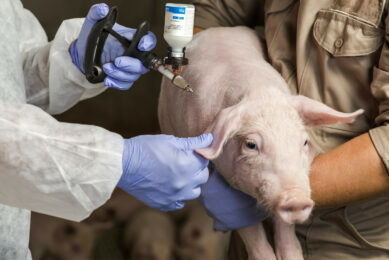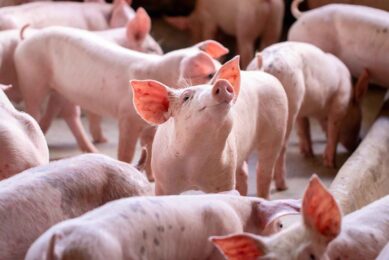How monitoring vaccine performance can save your pigs and your profits

In recent years, pig farming in Asia has faced significant challenges due to the emergence and spread of several critical diseases. Notably, Porcine Circovirus type 2 (PCV2), which caused severe economic losses in the early 2000s, and African Swine Fever (ASF), which has devastated the industry since its outbreak in China in 2018, remain major concerns.
Additionally, other diseases such as Porcine Reproductive and Respiratory Syndrome (PRRS), Porcine Epidemic Diarrhea Virus (PEDV), and Foot-and-Mouth Disease (FMD) continue to threaten swine health. Effective biosecurity measures, surveillance, and vaccination programs are essential to mitigate these diseases and ensure the sustainability of pig farming in the region.
One of the most frequently asked questions by pig raisers is about vaccine performance monitoring. As our Asia Technical Manager, Juver Membrebe shared,
In our line of work, we often face questions on how farmers can guarantee that the vaccine they are using works or if their vaccination system is good enough. This is why, we at Biogenesis Bago, emphasize the importance of good vaccination practices and a robust vaccine monitoring system. Regular monitoring helps in ensuring that the vaccines provide the intended protection, improving vaccination strategies, and detecting any issues early on.”
While vaccine performance monitoring can seem tedious, below is a simple and yet effective process to start implementing a good vaccine performance monitoring system in pig farms.
STEP 1: Planning and Preparation
Start by clearly defining the goals of your monitoring program. Think about what you need to assess: is it the efficacy of the vaccine, the duration of immunity, or the detection of any circulating virus? Choose herds that represent different age groups and management systems to get a comprehensive picture. Involve veterinarians and farm staff in the planning process to ensure everyone understands the objectives and procedures. Notify in advance and coordinate with the laboratory for sample ID, delivery and storage in the planning process. This collaborative approach helps in creating a robust and effective monitoring program.
STEP 2: Sample Collection
Timing is crucial when it comes to sample collection. Plan it to coincide with critical points post-vaccination. For FMD, you might need several time points to track the development and persistence of the immune response. Collect the appropriate samples, typically blood samples, to measure antibody levels and other relevant markers of immune response. Ensure that you follow a standardised protocol for sample collection to maintain consistency and accuracy. Use sterile equipment and label samples properly to avoid any mix-ups.
STEP 3: Laboratory Testing
Each pig disease has its own method for measuring vaccine efficacy. While ELISA is commonly used and beneficial for monitoring the immune response over time, make sure to use ELISA kits that have been verified by the manufacturer as suitable for your specific vaccine. For FMD, the virus neutralisation test (VNT) provides critical information on whether the vaccine offers protection against different strains of the virus. It’s best to have VNT conducted in FMD reference labs. Depending on your farm’s specific needs, you might also use other tests such as PCR (Polymerase Chain Reaction) to detect the presence of viral genetic material.
STEP 4: Data Analysis
After collecting the data, analyse it to assess the immune response in the vaccinated population. Compare antibody titers over time to evaluate the duration of immunity. Utilise software tools to manage and analyse the data efficiently. This will help you identify trends and make informed decisions about your vaccination strategy.
STEP 5: Reporting and Feedback
Compile your findings into a comprehensive report. Include a detailed analysis of the vaccine’s performance and any recommendations for improvements in the vaccination strategy. Share the results with farmers, veterinarians, and other stakeholders. Provide actionable insights and recommendations based on the monitoring outcomes. Ensure transparent communication with all stakeholders, offering regular updates on the monitoring results and any changes in the vaccination protocol.
STEP 6: Action and Adjustments
Based on the monitoring results, make the necessary adjustments to your vaccination protocol. This might include changing the timing of booster doses, changing the vaccination schedule of some vaccines, or switching to a different vaccine formulation if needed. Implement a routine schedule for ongoing monitoring to ensure sustained vaccine performance and to quickly identify any emerging issues. Provide continuous training and education for farm staff on the importance of vaccine performance monitoring and how to carry out the procedures effectively. Additionally, implement other preventive measures such as biosecurity protocols to minimise the risk of disease outbreaks.
By following these steps, pig farmers can ensure their herds stay healthy and productive through effective vaccine performance monitoring. Regular checks guarantee vaccines work, improve vaccination strategies, and catch issues early, therefore cutting disease losses. This program boosts animal welfare, sustainability, and productivity, reducing the need for antibiotics. Investing in a vaccine monitoring program creates a healthier, more resilient, and profitable farm in the long run.


